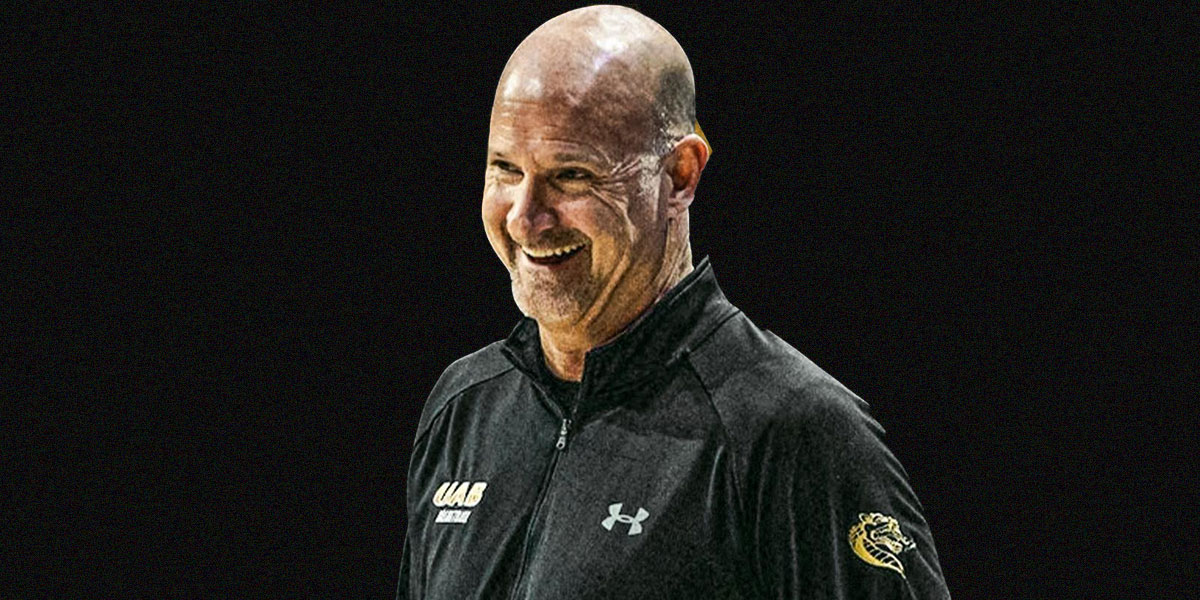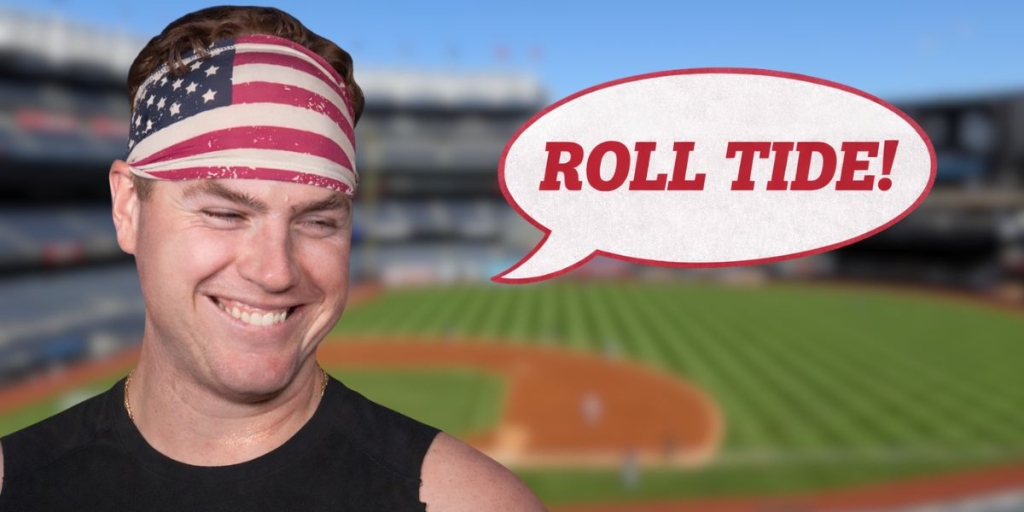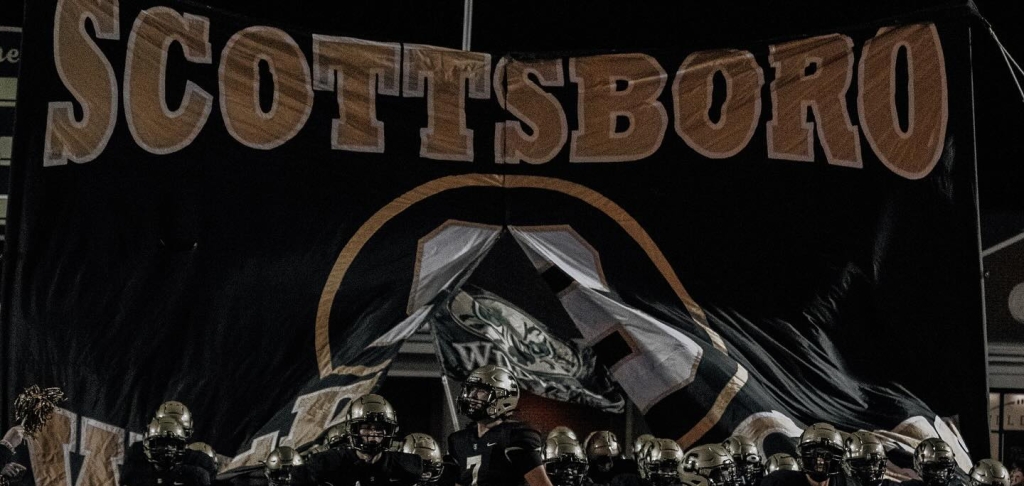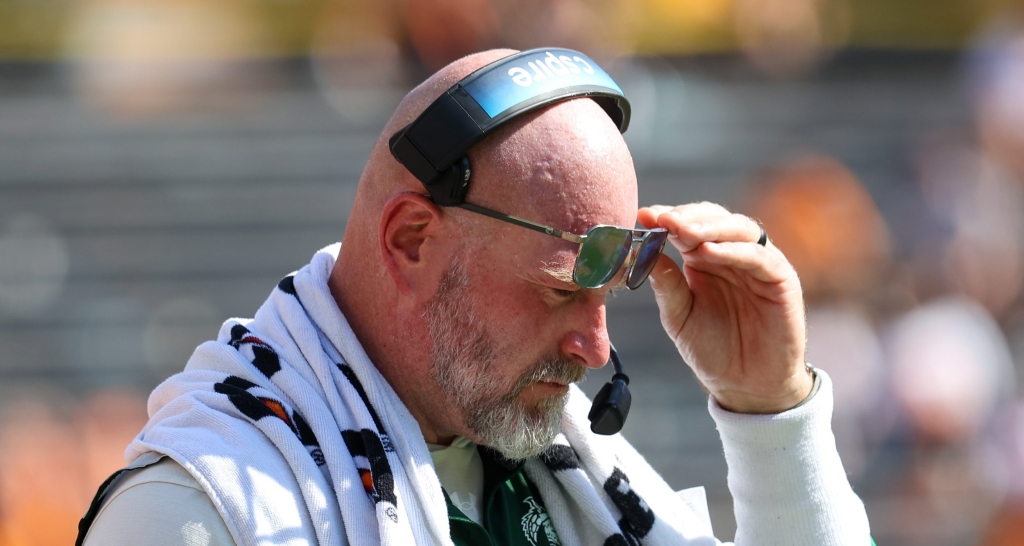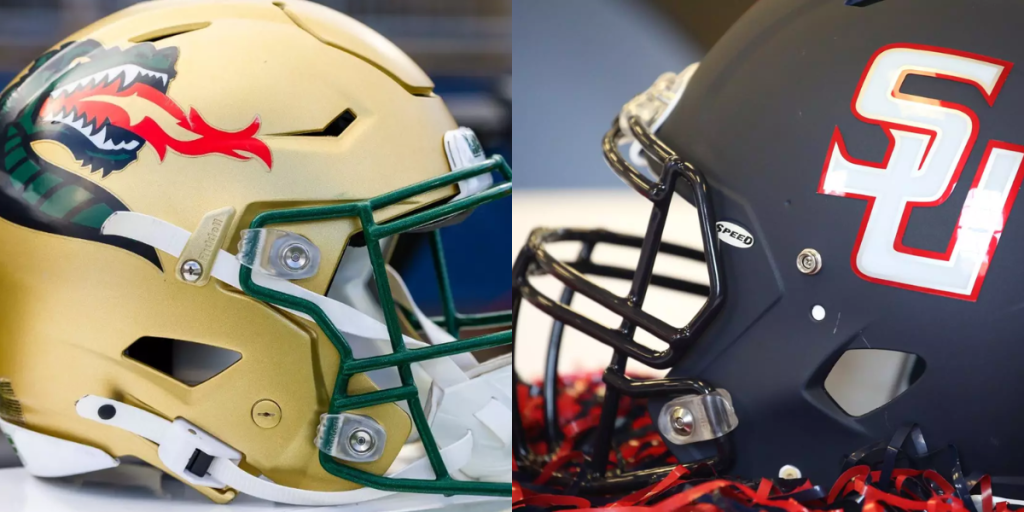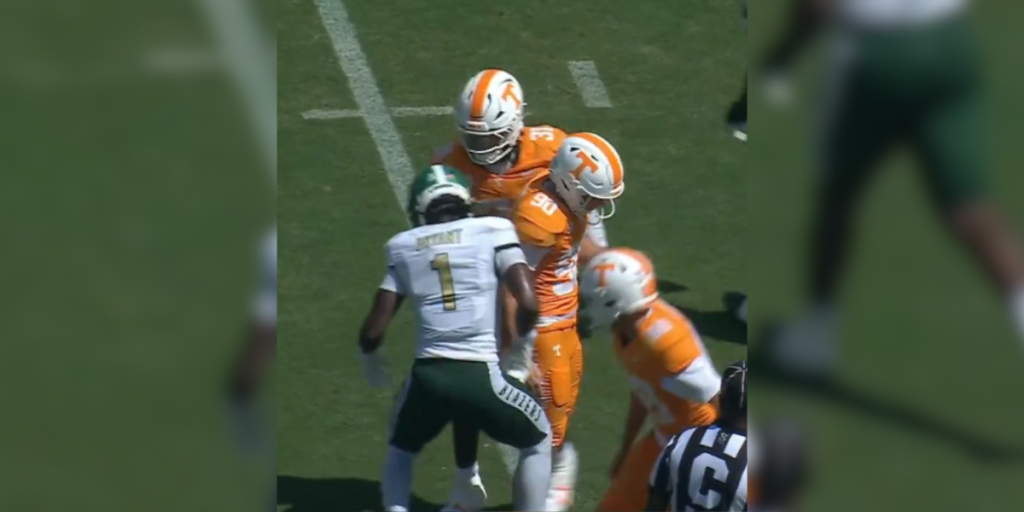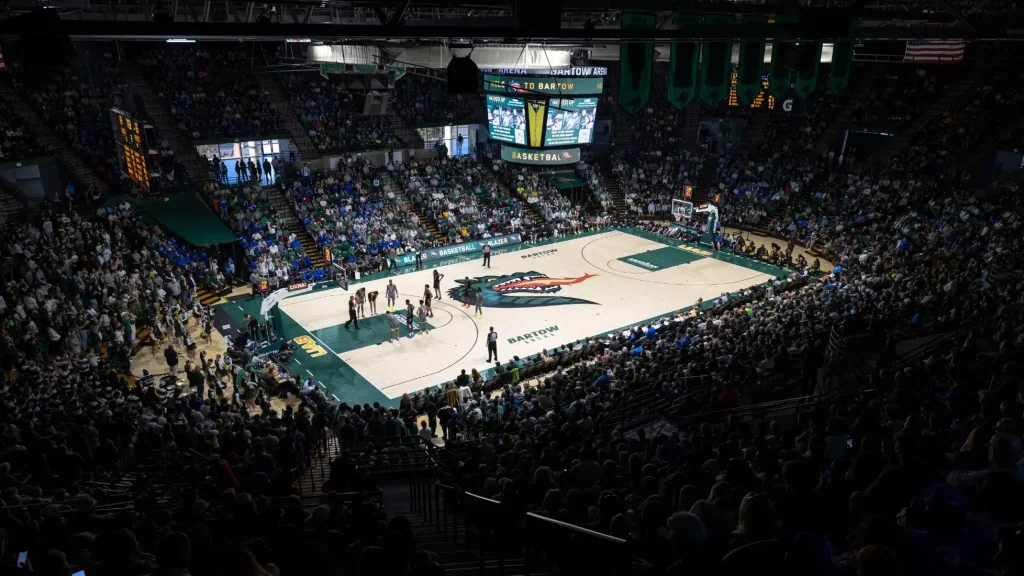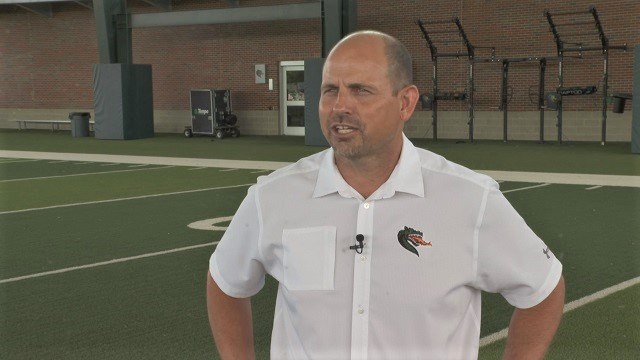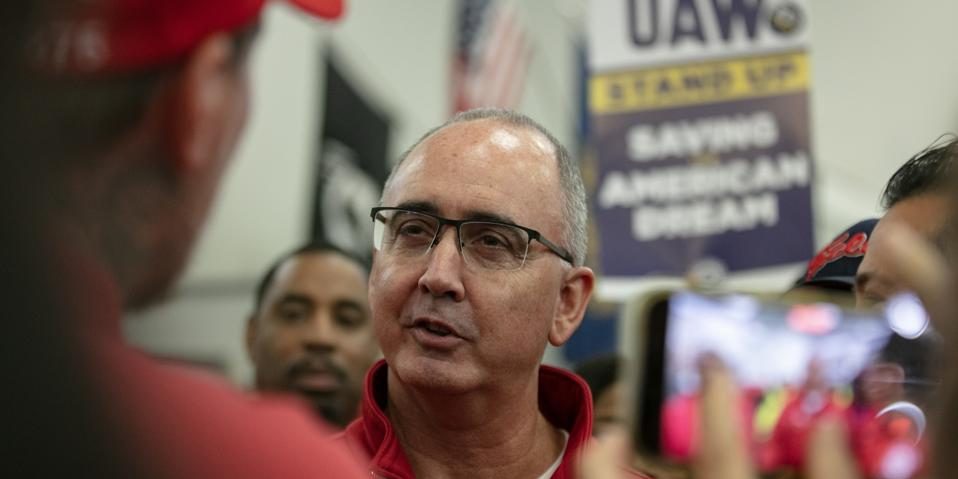Confetti began to fall as the clock ticked down on UAB’s dominant AAC championship victory over Temple.
Small forward Alejandro Vasquez, who paced the Blazers with 29 points, couldn’t contain his excitement. Forward Yaxel Lendeborg emotionally accepted the tournament’s MVP award. Big man Christian Coleman threw his hands up in joy. Point guard Eric Gaines shoved his teammates in celebration.
Under head coach Andy Kennedy, the scene has become familiar. UAB recently concluded the winningest four-year stretch in program history, recording 101 victories and appearing in two NCAA Tournaments over that period. The Blazers haven’t suffered a losing season since 2013.
Their secret? Quick and skillful navigation of the modern college basketball landscape.
Unlike most mid-major programs, the Blazers have unequivocally benefitted from the transfer portal, stockpiling copious amounts of talent while losing very little. Vasquez, Lendeborg, Coleman, and Gaines, important engines of UAB’s recent postseason run, all came to Birmingham from other schools. Since 2020, each of the Blazers’ leading scorers has been a former transfer.
It hasn’t just been their control of the portal. UAB has found creative solutions to many of the problems facing today’s college basketball teams, whether they be COVID rules or NIL. This embrace of modernity has allowed Kennedy and his staff to restore the program’s Gene Bartow standard and punch above their weight class.
Four years ago, UAB was emerging from an underwhelming decade of basketball. From 2010 to 2019, the Blazers won just a single March Madness game, unthinkable for a program accustomed to deep postseason runs. When UAB parted ways with former head coach Robert Ehsan in March 2020, Kennedy, a TV broadcaster at the time, was the logical replacement.
The move just made sense. Kennedy played basketball for the Blazers and was an assistant on the UAB staff in the late 90s. He coached the Ole Miss Rebels from 2006 to 2018 but expressed his love for UAB throughout his time in Oxford.
“I have sweat equity in the UAB program. I still follow them and pull for them. I have a strong affinity for that program, and I want to see it do well,” Kennedy told Kevin Scarbinsky in 2007.
He took two years off of coaching to work for ESPN but didn’t hesitate to pick up the phone when his alma mater came calling.
On March 19th, 2020, UAB introduced Kennedy as the seventh head coach in program history.
“This place is home for me,” he told The Athletic when he was hired. “I played here and coached here. I have lots of friends here.”
However, UAB’s new staff was tasked with adapting to a changing landscape. When Kennedy departed Ole Miss, “NIL” and the “transfer portal” were unheard-of concepts, but by 2020 they were taking over college athletics. Pandemic restrictions went into effect the week before Kennedy accepted the job, throwing another wrench in the works.
“I come back, and first off, we’re dealing with COVID. That first year was so bizarre in every aspect of life that it doesn’t even seem like it occurred,” Kennedy told Yellowhammer News.
“Everything was bizarre because the world had just shut down. And so there was nobody [of] the kids that were on the team on campus. Maybe one kid was still here.”
Roster-building in the summer of 2020 was challenging for every program, not just UAB. However, the new coach’s inability to meet his players until late summer further complicated the Blazers’ situation.
“When they arrived for summer workouts amidst the COVID pandemic, it was the first time that we’d ever met these people face to face,” said Kennedy. “It was the weirdest thing that I’ve ever gone through.”
The pandemic enhanced the turmoil of the coaching change, and the Blazers suffered significant roster attrition over the next few months. Six players departed Birmingham during the summer of 2020, leaving behind a core notably featuring veteran guard Tavin Lovan and promising freshman Tony Toney.
The UAB staff plugged the gaps with an experienced transfer class, leaning on established connections to secure the services of three players: Louisiana-Monroe guard Michael Ertel, Georgia Southern guard Quan Jackson, and Clemson center Trey Jemison.
“Trey was a guy that was from Birmingham. I had known him, I had recruited him right at the tail end of my time at Ole Miss, so I’d had a pre-established relationship. This was his hometown,” said Kennedy. “I hired [associate head coach] Ryan Cross who had coached Mike Ertel at Louisiana-Monroe. So he had a real understanding of what Mike was about. We had a relationship with Quan through Mike.”
Even after the Blazers solidified their roster and began play, normalcy was far away. Although UAB wasn’t drastically affected by the pandemic during the regular season, the looming threat of positive tests and cancellations made it hard for the team to establish a rhythm.
“You go through [the season], and as opposed to worrying about what you’re going to do to beat the next opponent, you’re just worried about, ‘Hey, are we going to have the game? Are the officials here? Did everybody test negative? What’s going on?’ So, really, your focus was changed dramatically,” said Kennedy.
Despite the extenuating circumstances, Kennedy’s inaugural Blazer team won 22 games. The transfers shined, setting the bedrock for future success. Ertel led UAB in scoring with 13.2 points per game, Jackson racked up a whopping 80 steals, and Jemison provided stout interior defense, blocking 2.1 shots a night.
UAB fell to Western Kentucky in the semifinal of the conference tournament, but the Blazers enjoyed their most successful season since 2016.
The summer of 2021 was the staff’s first offseason with any sense of a regular timeline. COVID remained an unavoidable factor — as of February, Kennedy still couldn’t enter multiple buildings on campus — but recruiting became much more accessible.
“It wasn’t full-fledged recruiting like the old days, but it started opening back up to the point where we could start having kids on official visits, we could start having interactions in person prior to those guys being a part of your team,” said Kennedy. “So [that] summer it did open up, and then soon thereafter is when the portal and NIL got to be really, really transient in roster management.”
With a full five months to work with, Kennedy added eight new players to the Blazer roster, including Tulane guard Jordan “Jelly” Walker and Ole Miss forward KJ Buffen. Once again, the UAB staff leveraged existing relationships to find portal gems.
“We had a mutual friend who was involved with the Jordan Walker situation,” said Kennedy. “With KJ, obviously, we had some affiliations with Ole Miss from my time there.”
The following seasons were two of the winningest in program history. Walker turned into a superstar, averaging over 20 points a game while making nearly 40% of his three-pointers. The guard dropped 42 points in a February 2022 win over Middle Tennessee, breaking the UAB single-game scoring record formerly held by Kennedy.
Jemison developed into a legitimate NBA prospect, Buffen became UAB’s best defender, Lovan set the school record for games played, and Toney went from a little-used freshman to a constant contributor.
The core changed — Jackson and Ertel graduated after the 2022 season and were replaced by LSU guard Eric Gaines, ETSU guards Ty and Ledarrius Brewer, Mississippi State center Javian Davis, and freshman guard Efrem “Butta” Johnson — but the results didn’t.
From 2021 to 2023, UAB won 56 games and a conference title, appeared in the NCAA Tournament, and reached the NIT finals, all while relying primarily on a stable of transfers.
UAB’s approach was tested last offseason when the Blazers suffered the most significant shakeup of the Kennedy era. Walker, Jemison, Buffen, the Brewers, and Lovan graduated, while depth pieces Tyler Bertram and Rongie Gordon transferred.
As they transitioned to the AAC, the Blazers were left with four returning scholarship players: Gaines, Johnson, Toney, and Davis. To bolster the roster, UAB signed Arizona Western forward Yaxel Lendeborg, South Plains forward Christian Coleman, and Salt Lake City CC guard Alejandro Vasquez.
The Blazers’ emphasis on junior college players marked a departure from the formula of years past. According to Kennedy, it was a product of their situation rather than a significant change in philosophy.
“NIL has gotten to be so prevalent that honestly, you’ve got to fight battles that you think you can win,” said Kennedy. “[Associate head coach] Ryan Cross has a junior college background. He’s always recruited junior college. He was a head coach at multiple junior colleges along his stops. And we’ve got some deep roots here. I’ve had success with junior college players at Cincinnati, at Ole Miss, and here.”
“We had some needs that could be filled by the two junior college kids that we signed early, Chris and AJ. By then, Yax [Lendeborg] had already signed with St. John’s. They had a coaching change. We find a connection. We convinced him that this is a great opportunity for him and thankfully he listened and the rest is history. So it was all unique in our needs and who was available and who could help us solidify our roster.”
A 4-5 start was the worst of the Kennedy era, but a star turn from Lendeborg rapidly changed the Blazers’ trajectory. The 6’9” forward would end the season boasting averages of 13.8 points, 10.6 rebounds, and 2.1 blocks, a stat line that earned him the AAC’s Defensive Player of the Year award.
Gaines led the conference in assists, Coleman and Vasquez served as spark plugs down the stretch, and Butta Johnson became the team’s best shooter.
Despite losing over 70% of their scoring from the 2022-2023 team, UAB again struck gold in the transfer portal and rode their newcomers to postseason success. After cruising through the AAC Tournament, the Blazers made their second March Madness appearance in three years, suffering a close loss to San Diego State on March 22.
UAB’s current run has been unique in multiple ways. Success? Only ten D1 teams have won more games than the Blazers since 2020. Adaptability? They joined the AAC less than a year ago and already have more conference titles than most longtime members. But what sets UAB apart from its mid-major peers is just how effectively it has retained its stars.
Once they arrived at UAB, Ertel, Jackson, Buffen, and Jemison never left, despite a plethora of high-major offers. Walker, one of the nation’s leading scorers, also stayed, describing his two years in Birmingham as the “best of his life.” Lendeborg, who recently had nearly 30 interested parties attempt to lure him into the portal, has committed to returning next season. Vasquez and Coleman have both followed in Lendeborg’s footsteps.
That continuity is almost unheard of at any level of the sport, let alone the mid-major level. As ESPN analyst Fran Fraschilla put it last Saturday, the current state of college basketball is “like European pro basketball. One-year contracts. You play well, you move up a level (bigger country), you play poorly, you drop a level.”
But no UAB starter has transferred since 2021. Kennedy points to the program’s strong developmental record as a reason players have remained.
“[With Trey Jemison], you’re talking about a guy that is starting now in the NBA, but five years ago, he was averaging less than five minutes a game at Clemson,” said Kennedy. Jemison currently logs 20 minutes a game for the Memphis Grizzlies.
“[Jelly was a guy] that had not come from a winning situation, never been an all-league caliber player. And he came to us and in his first year, helped us win a conference championship and get back to the NCAA tournament. He was named Player of the Year in the tournament, MVP,” Kennedy added. Walker led the G-League Texas Legends in scoring this season and is currently playing for Osos de Manati of the Puerto Rican BSN.
“I think there’s a belief here, there’s a trust that, hey, I’m going to come here and these guys are going to do what they say they’re going to do, they’re going to put me in the best position possible,” said Kennedy.
Kennedy also noted UAB’s decade-long streak of winning seasons. In his eyes, the program’s history of winning and consistent success has created a stable environment, particularly for players who have transferred before.
“A lot of these guys have been transient, two, three different schools along the way, and they’re looking for some stability to grow on that,” he said. “And what platform could be better than the one that we have provided? Hence the way that we finished the season by winning in our first year in the AAC and getting to the NCAA Tournament. Now they’ve got a taste of that. And I think guys now want to have an opportunity to expand on it and play deep into March.”
UAB hasn’t done it all with transplants, of course. Lovan was a crucial contributor for five seasons and the program’s only constant through a time of significant change — Kennedy once described him as the “greatest teammate on our team.”
Current players Toney and Johnson, Alabama natives, have spent their entire careers with UAB. Toney was Kennedy’s first signee, joining the program during COVID. He’s a physical, athletic guard who boasts several highlight-reel dunks. Johnson, who came to Birmingham in 2022, is known for impressive displays of clutch shooting. He hit a deep three-pointer in February to seal the Blazers’ win over #20 Florida Atlantic. Both players started in the majority of UAB’s games this season.
Kennedy believes there is a future for the homegrown talent, for the true freshman who spends his entire career with the same program, but he doesn’t know exactly what it will look like.
“There’s still going to be a place for [the true freshman],” said Kennedy. “My fear is that the fringe guy is not going to have — look, the top guys are always going to have options. The fringe guy might not have as many options as he did in the past.”
“You can no longer look at this like I did earlier in my career, really even just a few years back, and try to build a program where you had X number of guys in your senior class, X number of guys in your junior class, so forth and so on. Now you’re just trying to put together the best team that you can for the next season because it doesn’t matter if the kids are freshmen, he may not be here any longer.”
“But I just think that the dynamic has changed and everybody, whether it be UAB or Alabama or Kentucky or Kansas, we’re all just trying to field the best team we can based on the circumstances that we’re all dealing with,” he said.
“We all evolve and we all have to adapt or die, and we’ve been trying to figure out the best way for us to move forward through this ever-changing landscape of intercollegiate athletics.”
Despite UAB’s plentiful success, Kennedy is unsure what changes the next few years will bring. He’s focused, he said, on continuing to find innovative ways to navigate the Blazers across the increasingly uncertain maze of modern college basketball.
Charles Vaughan is a sports analyst and contributing writer for Yellowhammer News.




